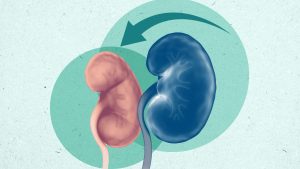Introduction The human body is a marvel of intricate systems, with each organ playing a vital role in maintaining overall health. Among these, the kidneys stand out as unsung heroes, performing crucial functions that often go unnoticed until something goes wrong. Science has unraveled numerous mysteries surrounding kidney health, shedding light on its importance and
Introduction
The human body is a marvel of intricate systems, with each organ playing a vital role in maintaining overall health. Among these, the kidneys stand out as unsung heroes, performing crucial functions that often go unnoticed until something goes wrong. Science has unraveled numerous mysteries surrounding kidney health, shedding light on its importance and paving the way for innovative treatments and preventative measures. In this article, we’ll delve into the fascinating world of kidney health, exploring the scientific breakthroughs that have transformed our understanding of these vital organs.
Understanding the Significance of Kidneys
The kidneys, two bean-shaped organs situated in the lower back, might seem unassuming at first glance. However, their functions are far-reaching and indispensable. They act as the body’s filtration system, removing waste products and excess fluids from the blood to produce urine. Additionally, they regulate electrolytes, maintain blood pressure, and play a pivotal role in the production of red blood cells.
Chronic Kidney Disease
Despite their importance, kidneys are susceptible to various ailments, with Chronic Kidney Disease (CKD) being a significant concern globally. CKD affects millions worldwide and often progresses silently, with symptoms manifesting in the advanced stages. However, advancements in medical science have enabled earlier detection and management of CKD, significantly impacting patient outcomes. Cutting-edge diagnostic tools, such as advanced imaging techniques and sensitive biomarker tests, have revolutionized the early detection of kidney diseases. These innovations allow healthcare professionals to identify signs of kidney damage before symptoms appear, enabling proactive interventions to slow down disease progression.

Image By:https://www.narayanahealth.org
The Role of Genetics in Kidney Health
Understanding the genetic components of kidney diseases has been another frontier in kidney health research. Scientists have identified numerous genetic markers associated with kidney disorders, providing invaluable insights into the underlying causes. This knowledge has not only facilitated the development of genetic screening tests but has also paved the way for personalized treatment approaches tailored to an individual’s genetic makeup.
Innovative Treatments and Therapies
The realm of kidney health has witnessed groundbreaking advancements in treatment modalities. For instance, the evolution of dialysis technology has vastly improved the quality of life for individuals with compromised kidney function. Additionally, kidney transplantation has become more refined, with better matching techniques and advancements in immunosuppressive therapies, enhancing success rates and long-term outcomes for transplant recipients. Moreover, ongoing research in regenerative medicine holds promise for developing novel approaches to regenerate damaged kidney tissue. Stem cell therapy and tissue engineering techniques offer hope for repairing or replacing damaged kidney cells, potentially revolutionizing the treatment landscape for kidney diseases in the future.
Lifestyle Modifications and Preventative Measures
While scientific innovations have significantly improved our ability to manage kidney diseases, preventive strategies remain crucial. Lifestyle factors, including diet and exercise, play a pivotal role in maintaining kidney health. Scientific evidence emphasizes the importance of a balanced diet, low in sodium and processed foods, coupled with regular physical activity in reducing the risk of kidney problems. Public health initiatives promoting awareness about the significance of kidney health and advocating for routine screenings among high-risk populations have also contributed to early detection and intervention, potentially mitigating the burden of kidney diseases.
Challenges and Future Directions
Despite the strides made in understanding kidney health, challenges persist. Access to healthcare, especially in underserved communities, remains a barrier to early diagnosis and treatment. Addressing these disparities requires concerted efforts from healthcare providers, policymakers, and the community at large. Looking ahead, ongoing research aims to unravel deeper complexities of kidney biology, exploring innovative therapies like artificial kidneys and bioengineering solutions. Additionally, the integration of artificial intelligence (AI) and machine learning in healthcare holds promise for more accurate predictive models and personalized treatment plans for individuals with kidney diseases.

Image By:https://www.health.com
Conclusion
The journey of understanding kidney health through the lens of science has been both enlightening and transformative. From decoding the intricate functions of the kidneys to developing innovative treatments and advocating for preventive measures, scientific advancements continue to redefine our approach to kidney health. As we move forward, the collaborative efforts of researchers, healthcare professionals, policymakers, and the community will be instrumental in furthering our understanding and effectively combating kidney diseases. By harnessing the power of science and translating it into practical solutions, we can aspire to ensure better kidney health for generations to come. With a focus on scientific breakthroughs in kidney health, this article provides an overview of the significance of kidneys, advancements in understanding and managing kidney diseases, innovative treatments, lifestyle considerations, and future directions in research. The aim is to offer a comprehensive exploration of the subject within the specified word limit.





















Leave a Comment
Your email address will not be published. Required fields are marked with *